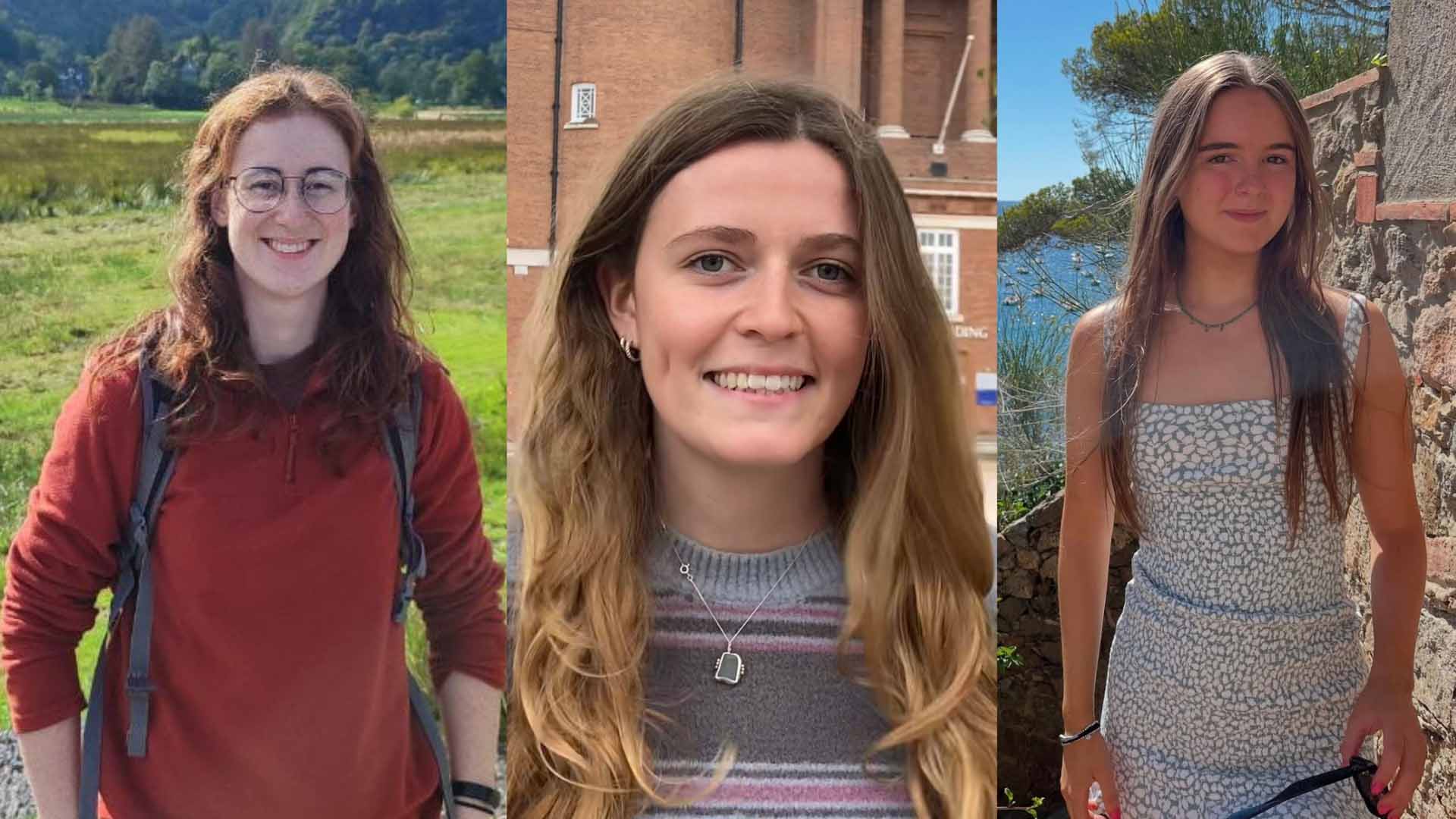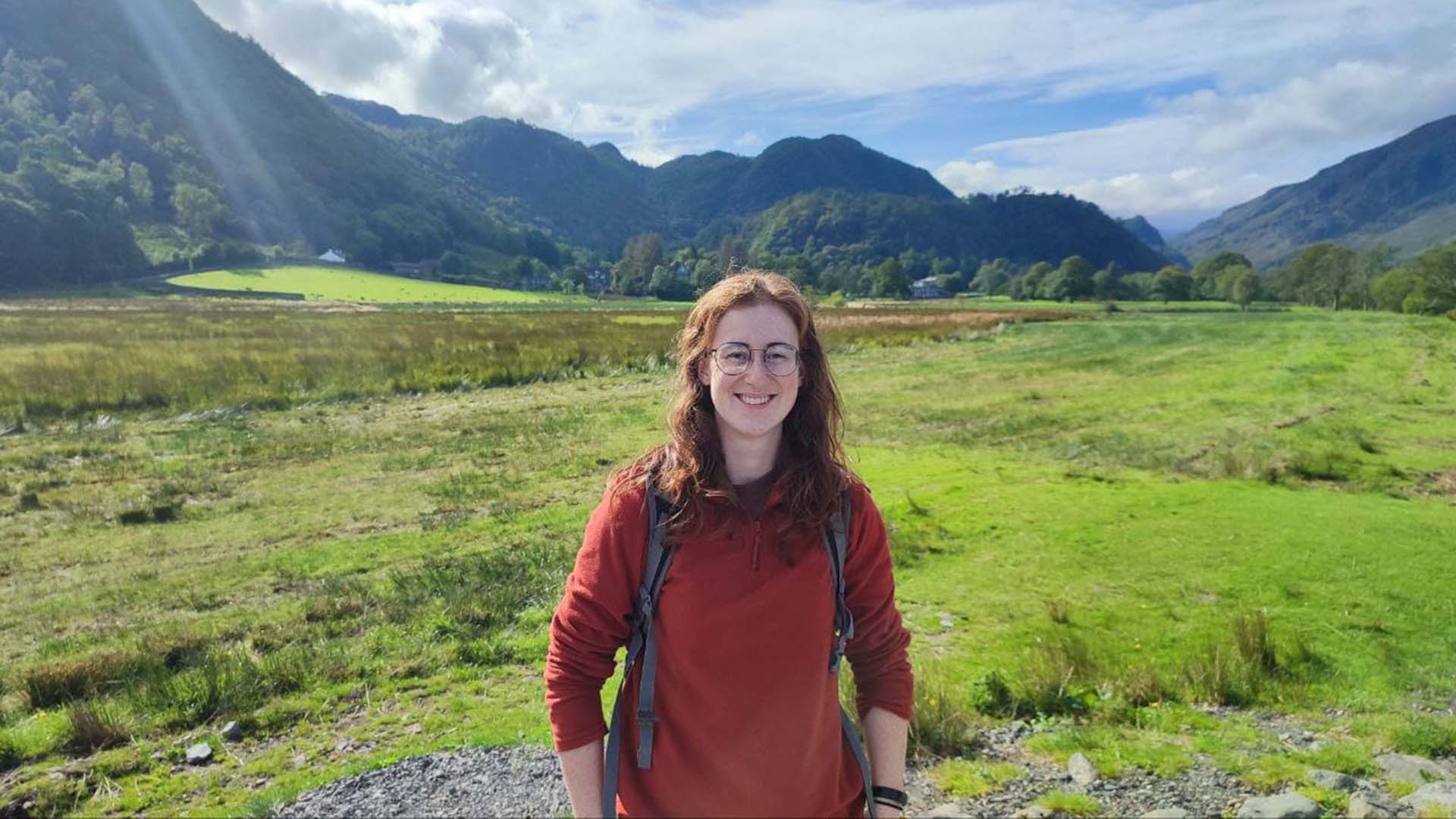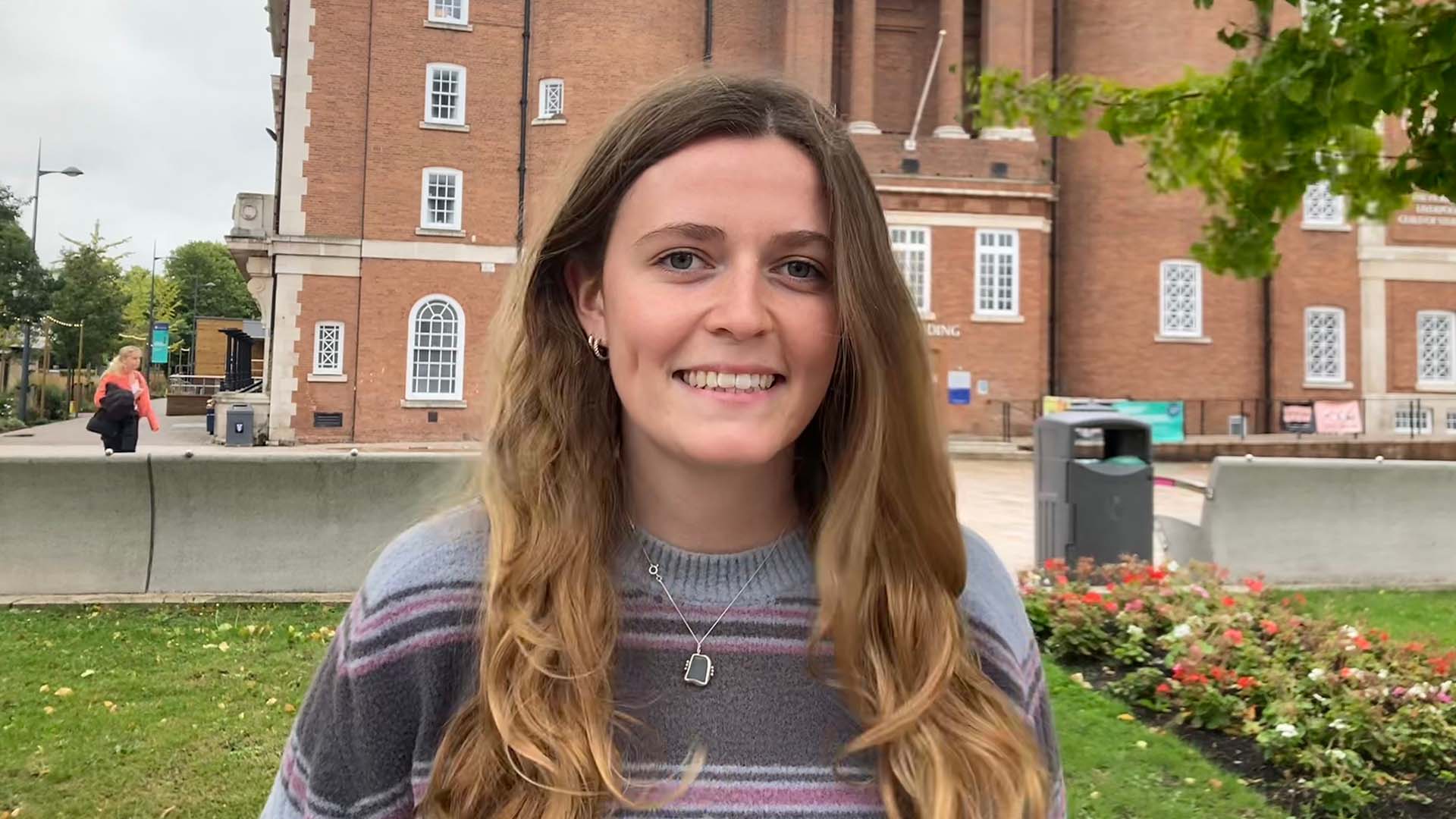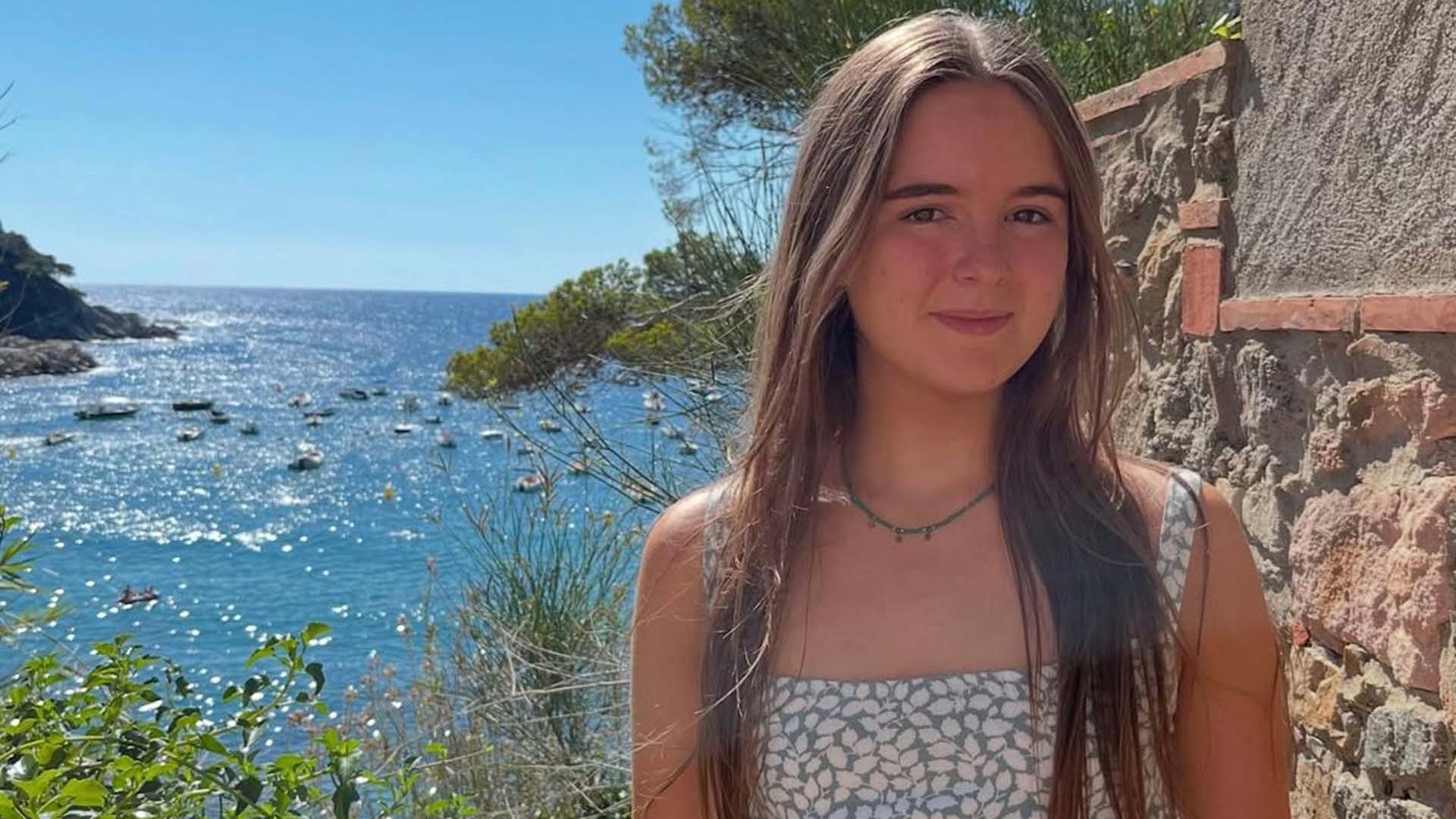
Congratulations to Charlotte Worth, Sophie Hitchings and Issie Leigh on scooping prestigious awards from the Wolfson Foundation to support their research as part of their intercalated degrees this year.
Every year the School nominates up to 3 outstanding Liverpool student doctors, each with a quality scientific project, for consideration for the award. Sophie, Issie and Charlotte share more on their research and offer some top tips for students considering following in their footsteps next year.

Charlotte Worth
MRes Biological and Biomedical Sciences, University of Liverpool
My main motivation to intercalate was to be able to dedicate a whole year to a more specific subject and explore topics I enjoyed the most in medical school in increasing depth. It will also be a time to learn more about the intricacies of biological research and what working in a lab is like - which isn’t something that I’ve experienced in my university studies so far.
Being part of research that will affect the lives of patients and their families is also a huge privilege and I am looking forward to being able to contribute to that across this year. I chose this particular course because of the wide range of optional modules available which means I can tailor the taught parts of the course to things that I am interested in.
This year I am also one of the Band Directors for Artefacts (the Medical School Performing Arts Society) so another motivation to intercalate was to have a bit more time and space for the extracurricular activities I am part of in uni!
The research I am a part of this year is looking into a genetic cause of amyotrophic lateral sclerosis (ALS) - a subtype of motor neuron disease.
The focus of the research will be on discovering target molecules which act against the mutant SOD1 gene that can cause some familial ALS types. This will involve growing and purifying protein crystals and using x-ray crystallography to determine whether molecules have successfully bound to mutant SOD1 to destroy or inactivate it.
I am so grateful that I was chosen to receive the Wolfson Foundation Award. My main advice for anyone considering applying for it, or other intercalation awards, is just to do it – you never know what might happen!
On a more practical level, awards like the Wolfson want to know the research project you’ll be doing when you apply for the award. Emailing the director of the course you’d like to do and asking what projects are available in fields you’re interested in is useful way to find a project early on – and, in my experience, also increased my excitement about the year to come when I knew my research topic!

Sophie Hitchings
MRes Clinical Sciences, Paediatric Infectious Disease at Alder Hey Children’s Hospital
I decided to intercalate because it gives me freedom to explore my interests, whilst gaining valuable skills in data analysis. In my second year I went to a student-led research conference and saw students only a few years ahead presenting projects they had designed themselves. It was impressive but also intimidating. That aspect of medicine felt so far out of my comfort zone, and yet it had piqued my interest in research.
During my third year I had my first experience of paediatric placement and found that I really enjoyed the four weeks that I spent in the department. Whilst on placement we got to spend time in the children’s assessment unit, where sepsis screening took place. I was intrigued to see the tools clinicians used to triage patients with infectious symptoms, and determine what investigations were needed, and how quickly. Sepsis disproportionately affects children, and the symptoms of serious illness can be notoriously vague in younger age groups.
I chose to do the MRes since it gave me the most freedom over my project, and I felt I could tailor my research to my interests. Initially I approached the head of the MRes course to ask if there were any projects in the field of pediatrics or infectious disease, and I was put in touch with two doctors at Alder Hey Children’s Hospital, who could combine both of those interests. Professor Enitan Carrol and Dr Andrew McArdle worked with me to suggest relevant projects that align with current research at Alder Hey.
My project will be based on evaluating the accuracy of organ dysfunction scores in predicting admission to critical care, in children with suspected sepsis.
This will involve using data from children given IV antibiotics in the emergency department, over several years, to determine if scores such as the Phoenix Sepsis Score are useful in predicting which children are at risk of the most serious illness.
I am most looking forward to working as part of a research team at Alder Hey, as I get to be surrounded by people with a range of skills and interests. I hope to develop my skills in data analysis and interpretation, as well as communication and presentation of research to professionals and the public.
It was a surreal feeling to receive the award. When I decided to apply, I was unsure if I would have everything I needed for the application by the deadline, and I had no expectations of ever being chosen from my cohort! I am very grateful to the doctors and researchers that contributed to my application, both in references and with project design.
I would encourage everyone to consider what interests them and think about whether intercalation would allow you to explore this. Try not to think of research as a daunting concept, there is something for everyone! In terms of applying for schemes, my advice would be to go for it. It can feel overwhelming to put together an application, but there is lots of support available and it’s a good experience to have either way. It doesn't have to be perfect, giving people a well-rounded view of yourself goes a long way.

Issie Leigh
MRes Biological and Biomedical Sciences, The Walton Centre
I had always wanted to intercalate, but funding an additional year of study initially seemed challenging. After seeing the research that goes on in the hospitals during placement, I felt inspired to get involved with my own research, and I was motivated to find a way of means to support me with this.
I have always been interested in neurosurgery, having attended conferences and particularly enjoyed the neuro-focused content in my early years of medical school. I have also developed an interest in oncology and its devastating impact on patients. After learning about glioblastoma, I quickly realised its impact, highlighting just how urgent and important research in this area is.
I became determined to combine my passion for research with academic medicine to explore this disease in greater depth to contribute to improving patient outcomes.
I contacted Professor Michael Jenkinson at the Walton Centre to express my interest in research, and he very kindly introduced me to my supervisor, Mr Michael Cearns and his team, who very kindly supported my Wolfson application. I am now working with Mr Cearns and his excellent team to investigate the immune heterogeneity of glioblastoma.
My research is laboratory-based, focusing on the development of a multiple immunofluorescence panel to analyse tumour microenvironments and cell–cell interactions. I am very excited to gain experience in the lab, work with others, and build confidence in a real research environment.
I first heard about the Wolfson Award from a previous recipient at the intercalation fair, and I was deeply grateful to be selected for this prestigious award. The award has given me the opportunity to pursue a project I am passionate about, and I am excited to begin this next adventure.
For anyone with the motivation to get involved with research, an MRes is an incredible opportunity to gain independence, learn new skills, and be part of a supportive research community. I would strongly encourage other students considering intercalation to explore the wide array of awards available, as they can open the door to experiences that you might have thought were out of reach.
Discover more
- Inspired by these exciting pieces of research? Browse through the wide range of MRes and other intercalation opportunities available at the University of Liverpool.
- In Year 3 and weighing up your intercalation options for next year? Take a look through the Intercalation section of the student intranet which offers lots of helpful information, including awards and scholarships like the Wolfson Award available to support you.
- Don’t miss out on the Intercalation Showcase on Wednesday 15 October which is a great chance to hear from academic leads, researchers and past intercalators to decide on the right path for you.